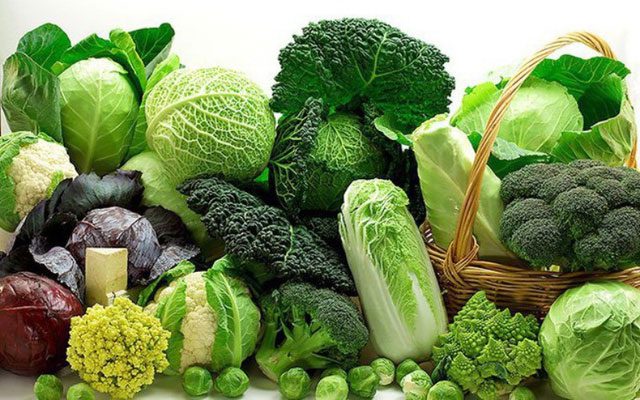Rheumatoid arthritis causes swelling, pain, and stiffness in the joints. This condition not only makes it difficult for patients to move but also leads to various complications such as joint fusion, deformities, and disability. A balanced and scientific diet plays a crucial role in managing and improving the symptoms of the disease.
Foods Beneficial for People with Rheumatoid Arthritis
Foods that possess strong anti-inflammatory properties and are rich in antioxidants are recommended for patients with rheumatoid arthritis. A balanced, nutritious, and scientific diet will greatly support the management of the disease. Patients with rheumatoid arthritis should incorporate the following food groups into their daily diet.
Leafy Greens
Leafy greens are an essential component of the daily diet for individuals with rheumatoid arthritis. Particularly, dark green vegetables provide a large amount of antioxidants and vitamins that help protect cells, boost the immune system, and minimize damage caused by arthritis. Additionally, natural leafy greens contain sulforaphane, which helps slow down the destruction of bones and joints caused by inflammatory reactions.

Leafy greens help protect cells and limit damage caused by rheumatoid arthritis.
Foods Rich in Omega-3
Omega-3 is a nutrient with excellent anti-inflammatory properties found in fatty fish such as sardines, mackerel, tuna, and herring. Consuming foods rich in omega-3 can help reduce and limit inflammation in the joints and alleviate symptoms of swelling and joint pain.
Olive Oil
Olive oil is packed with natural anti-inflammatory components such as polyphenols and oleocanthal. These substances help combat inflammatory precursors and swelling in the joints, thereby alleviating symptoms of joint swelling and pain, improving mobility for patients.
Foods to Avoid for People with Rheumatoid Arthritis
Individuals with rheumatoid arthritis should pay special attention to their daily diet, limiting foods that increase inflammatory responses to avoid exacerbating their condition. Below are the types of foods that patients with rheumatoid arthritis should avoid or limit in their daily meals.
High-Fat Foods
Patients with rheumatoid arthritis should limit their intake of foods high in fat, especially those containing animal fats with high lipid content, as they can lead to increased blood fat levels. This can intensify inflammatory reactions in the joints, causing more frequent swelling and pain. Therefore, patients should avoid high-fat foods such as sausages, ham, processed meats, butter, animal fats, and fried foods.

Patients need to limit high-fat foods as they can increase inflammatory responses in the joints.
Animal Proteins
Patients should reduce their consumption of animal protein and foods high in purines, such as seafood, poultry, and red meat, as these can increase inflammatory responses within the joints and worsen joint pain. Instead, patients should prioritize plant-based proteins like tofu, legumes, grains, and nuts, which provide energy and support better disease management.
High Sugar and Salt Foods
To aid in managing rheumatoid arthritis, patients should limit their intake of foods high in sugar, such as sugar, butter, and sweets. Additionally, foods high in salt, like pickles and kimchi, should also be consumed in moderation. Foods high in salt and sugar can lead to dehydration, accelerate joint degeneration, and negatively impact the nervous system. Particularly, high salt levels in the body can cause calcium deficiencies in the bones, speeding up bone resorption.
Animal Organs
Animal organs contain excessive cholesterol, leading to metabolic disorders, high blood fat, and atherosclerosis. High cholesterol levels can also result in hypertension, diabetes, gout, and obesity, increasing pressure on the joints and exacerbating arthritis conditions.
Alcoholic Beverages
Alcohol, beer, and other alcoholic beverages contain stimulants that increase inflammatory responses in the body. Therefore, individuals with rheumatoid arthritis should avoid these drinks to prevent worsening their condition.



















































